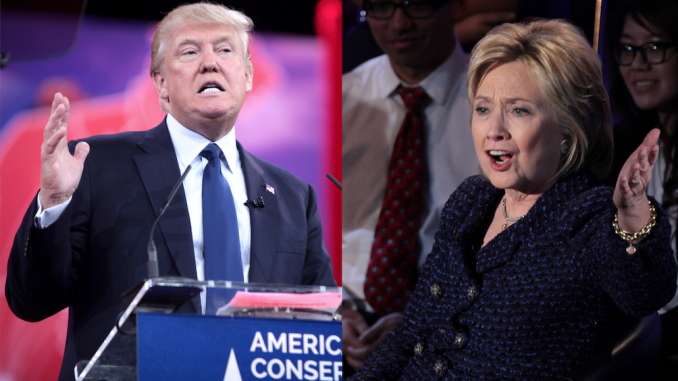
Republican candidate Donald Trump and Democratic candidate Hillary Clinton took center stage at the University of Nevada, Las Vegas for the presidential election’s last debate on Oct. 14. Moderated by Chris Wallace of Fox News, the event reached 71.6 million viewers, making it the third most-watched presidential debate in television history.
Clamor and cross-talk littered the discussion, both from the candidates and from the moderator’s beleaguered but resolute attempts to rerail the subject. The audience, asked beforehand to remain quiet, could not be contained during the debate’s most forceful moments. Ostensibly a chance for Trump and Clinton to criticize, discuss and win voter support, the event seemed only to air their mutual contempt.
Fittingly for the final debate, both candidates escalated their rhetoric while keeping true to their established style. Trump opened by condemning a recent critic, Justice Ruth Bader Ginsburg, before attacking Clinton’s gun views to strengthen the appearance of his own. Later responses often used the same tactic to appear more substantial, but failed to shed further light on either candidate’s platform.
Clinton’s speech, while more traditionally political and less aggressive, often showed little patience for Wallace’s chosen topics. Her insistence on calling attention to issues far removed from those at hand did not go unnoticed. Following one tangent, which leaped from open borders to blaming her opponent for Russian espionage, Trump sarcastically called Clinton’s speech a “great pivot,” to the audience’s amusement.
As the debate continued, Wallace switched to questions regarding recent scandals.
He asked Trump about the women accusing him of sexual assault, which the candidate blamed on Clinton’s campaign. Trump attempted to interrupt Clinton during her chance to speak on the matter, but Wallace cut him off and allowed Clinton to finish. Trump began his next response by saying, “Nobody has more respect for women than I do.”
Wallace moved to Clinton next, and cited evidence that wealthy Clinton Foundation donors were prioritized in her administration while she was Secretary of State. Clinton refused to initially address the evidence, instead praising the foundation’s humanitarian work. When Wallace reminded Clinton of the question, she stuttered and denied the evidence existed.
In a later segment, Trump audibly shocked the audience when he refused to say whether he would concede if he lost the election. “I’ll keep you in suspense,” he told Wallace, after the moderator pressed him and cited the American tradition of peaceful transition of power. Clinton immediately called his response “horrifying.”
Wallace’s final questions, on foreign conflict and federal spending, created little beyond cross-talk and segues into personal attacks. During the latter topic, Clinton coldly alluded to her opponent’s tax evasion, to which Trump responded by calling her a “nasty woman.” The debate ended with each candidate giving an impromptu speech about why they should be elected. The remarks, though civil in comparison to what preceded them, were unoriginal.
Wallace signed off with a short speech of his own. “While millions have already voted, Election Day, Nov. 8, is just 20 days away. One thing everyone here can agree on: we hope you will go vote. It is one of the honors and obligations of living in this great country. Thank you, and good night.”
Trump and Clinton did not shake hands at any point before, during, or after the debate.
This 2016 Presidential Election and Debate Recap was written from the perepective and research done by the reporter. Commentary does not necessarily reflect the views or opinions of the Oracle or the univserity.
